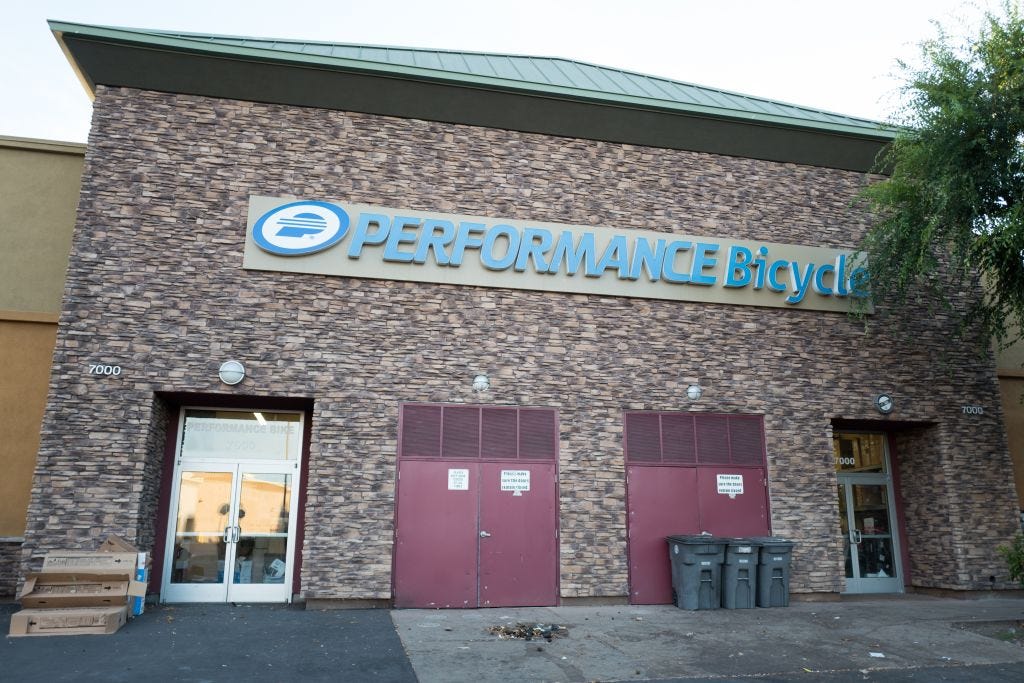All right, I won't give myself that much credit. I am only one of an invasive species.
Is it because I'm female? Transgender? (Yes, we really are trying to take over the world!;-)) Someone who didn't vote for Trump?
No, it's not because of any of those things. At least, that's what Scott Sales, a Montana State Senator, would have you believe.
Yes, Senator Sales, I am a cyclist. IIII aaam aaa cyyyy-clisssst. Booo! I am coming to take over your state! Bwa-ha-ha-ha!
OK, so he didn't say "Cyclists are an invasive species" as an exclamatory or declarative sentence. But he did something that, in effect, labelled us as such.
He wants to make any out-of-state cyclist entering the state buy a $25 sticker, which would have to be attached to the bicycle and renewed every year, by tacking an amendment onto SB 363, a bill about invasive species management. Specifically, he wants the money he shakes down from us (Well, all right, I wasn't planning to go to Montana this year!) to be used against an invasive mussel species in the state's waterways.
So let me get this straight (Please don't read anything into that last word!): Senator Sales is equating cyclists with invasive mussels.
 |
| Please tell me he's being ironic. Is he capable of irony? (From Montana Public Radio) |
I don't have to tell you how absurd this idea is. What in the world can taxing cyclists do to halt the spread of a mussel that multiplies faster than anything else in the Big Sky State's rivers, streams and lakes?
Folks who use motorized fishing boats don't have to pay any such fee for the privilege. Now, perhaps I'm ignorant in the ways mussels spread their range, but I should think that one boat can do far more to facilitate that than all of the cyclists in the world ever could.
Hon. Sales' proposal, moreover, demonstrates all sorts of profound ignorance regarding cyclists. He said that cyclists need "to put some skin in the game" in regards to road and recreation funding in the state". He has called cyclists "some of the rudest and most self-centered people I've ever met" who "think they own the highway."
This, from a guy who shot down another bill that would have required motorists to give cyclists a three-foot berth when passing at 35MPH and five feet while driving any faster than that.
Of course, anyone who would put the kibosh on such an idea doesn't realize that, unlike motorists, we can't operate our machines while texting or distracted in other ways. Moreover, we are far less likely to ride than drivers are to drive while munching on fast food or imbibing alcohol because, well, it's difficult, if not impossible, for us to do those things.
About his "skin in the game" comment: It's not the first time I've heard this wholly inaccurate perception of what we do or don't have invested "in the game." Of course, it wasn't nearly as dangerous when it came from the folks from whom I've previously heard it as it is when it emanates from the mouth or pen of a lawmaker.
You see, we pay the same taxes as motorists pay, whether or not we drive. Contrary to what some believe, there is no separate "road tax", at least not from the Federal government or any state or municipality of which I'm aware. In fact, the only taxes I don't pay that any motorist pays are the ones added to gasoline.
Aside from that, I have just as much "skin in the game" as any motorist. I'll admit, though, that as the weather gets nicer and I'm riding more, I won't have as much skin in the game because, well, I won't have as much skin. That, I should think, would make me less invasive.




















